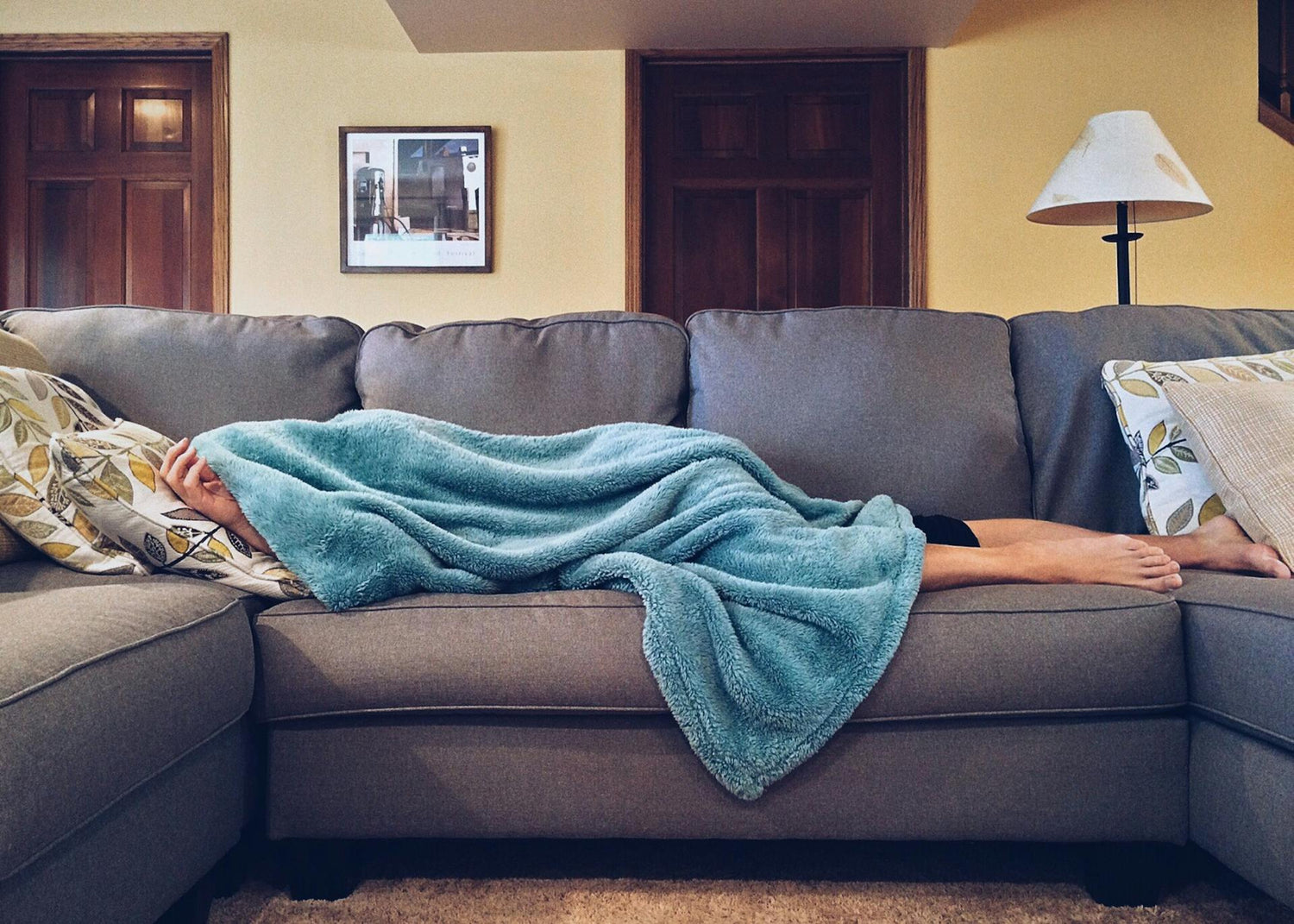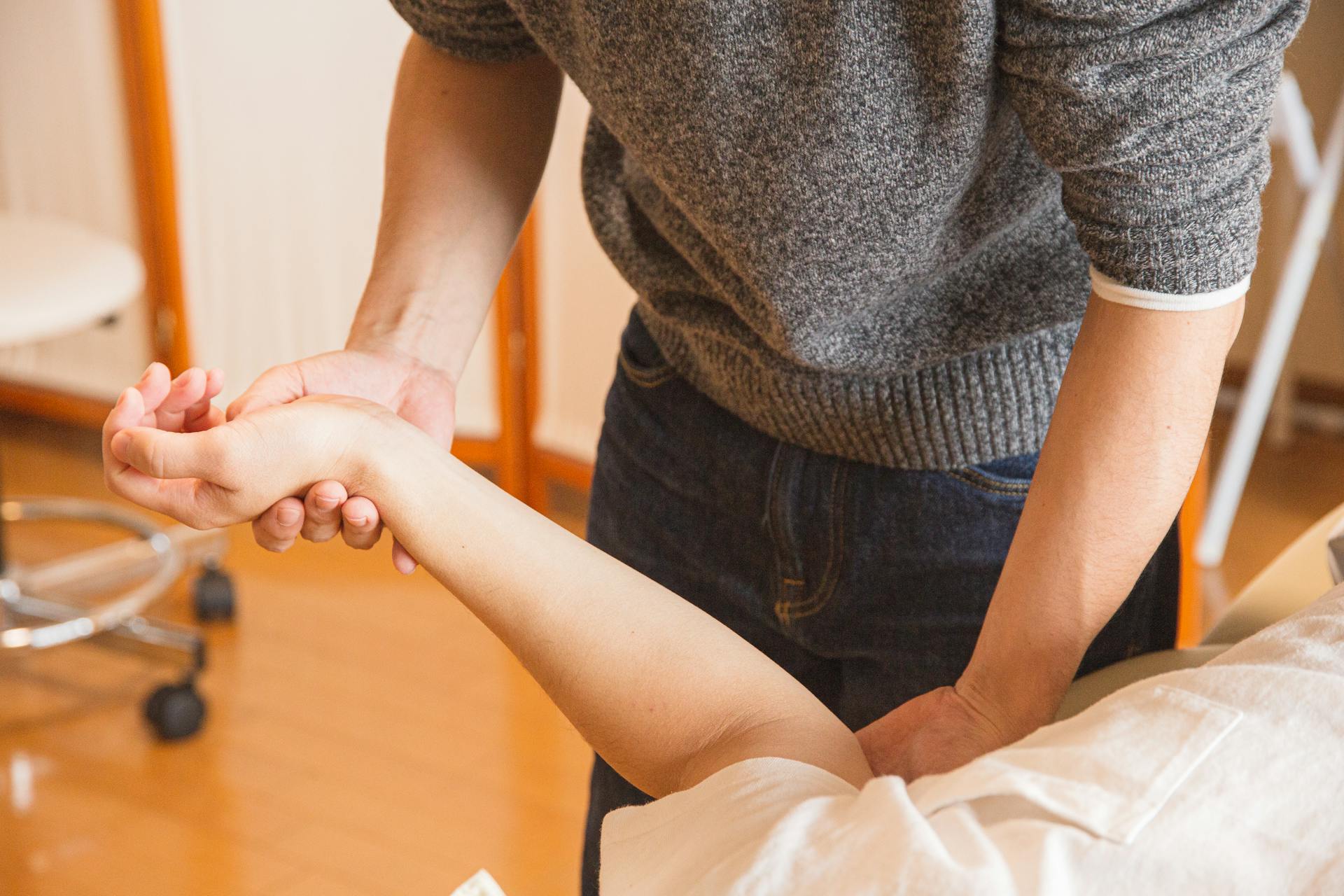Do you toss and turn all night, only to feel like you’ve barely slept at all by the time your alarm clock goes off? If so, you know what it’s like to face insomnia.
Insomnia can make your sleep short and choppy — and it can often make it hard to doze off at all. And you might know that certain medications and good sleep hygiene can help, but what about massage therapy? Can a massage curb your insomnia and help you get better rest?
Here’s what you should know about insomnia and massage therapy, including the impact of massage on sleep quality, the research, and how to get started.
Understanding Insomnia
Insomnia — or trouble falling or staying asleep — is one of the most common sleep disorders. 30% of U.S. adults will report short-term bouts of insomnia, while 10% of people will be affected by it long-term.
So, what causes insomnia? You might have trouble sleeping if:
- You deal with mental health issues like depression, anxiety, or high stress
- You have another medical condition that brings on insomnia
- You’re dealing with chronic pain or an acute injury
- You’re on certain medications
Of course, these aren’t the only reasons a person could have insomnia. Sleep is a complex process, and many factors are at play when it comes to your rest cycle.
When it’s time for bed, your body releases a sleep-related hormone called melatonin. And as you doze off, your heart and breathing slow down, and your mind disconnects from the outside world.
But when something interrupts this process — such as high stress, pain, or other underlying factors — your body and mind may have a hard time switching off. And depending on the source of your insomnia, this is where a massage might help.
How Massage Can Improve Your Sleep
It sounds intuitive, but a soothing massage really could improve your sleep at night. Here are some of the most powerful benefits of massage for sleep to know:
Improves Sleep Quality
There’s a growing body of evidence showing the benefits of massage on specific populations’ sleep quality.
For example, a 2019 study set out to see how massage could help ICU patients with their health and sleep. The results showed that just 10 minutes of back massage positively affected sleep quality, sleep duration, breathing, and anxiety.
Another study looked at massage’s benefits for women who were going through menopause. Incredibly, the participants reported better sleep and quality of life after receiving regular therapeutic massage.
In another small study of fibromyalgia patients, massage improved sleep quality, along with pain and quality of life.
Relaxes Your Body and Mind
Experts often recommend using relaxation and stress relief techniques to combat insomnia. And because a massage can bring about your body’s relaxation response, it could be a great nighttime option.
When your relaxation response is activated:
- Your heart rate and blood pressure decrease
- Your muscles relax
- Your mind clears up and is less focused on stressors
Together, these benefits can make it easier to fall and stay asleep.
Reduces Anxiety and Stress
If anxiety and stress have been playing a role in your inability to sleep, you’re not alone. Stress is a common factor in insomnia and other sleep disorders. Luckily, a simple bedtime massage could help.
When you use massage before bed, you may find that it eases the physical and mental tension that results from your anxiety, while helping you focus on the present moment. These effects can eliminate some of the stress that might be getting in the way of your sleep.
Can Combat Restless Legs Syndrome
Sleep issues like insomnia and restless legs syndrome (RLS) tend to go hand-in-hand. Fortunately, there has been evidence to suggest that massage can combat symptoms of restless legs syndrome.
For example, a 2020 clinical trial on the MedMassager MMF07 foot massager showed that using the massage tool before bed could boost sleep quality and improve symptoms of RLS.
What Are the Best Massage Techniques for Insomnia?
The best massage technique for insomnia will depend on your unique needs and preferences. However, you may find that home massage is more practical and useful than visiting a spa — especially if your main reason for trying massage is to get better sleep.
This is because home massage is:
- Accessible when you want to wind down for the night. A home massage means you can get therapeutic relaxation when you need it most.
- Consistent. Spas and massage therapists tend to be weekly, bi-weekly, or monthly occurrences. And since insomnia can happen frequently, a consistent home massage routine might be more helpful.
With this in mind, here are some ways to try home massage for insomnia:
Hands-On Methods
Try a gentle, light-pressure massage from yourself or a partner, or use manual tools. You can gently knead your arms, legs, and other easy-to-reach places with your hands.
Aside from that, you can use tools to relieve tension in harder-to-reach areas such as your middle and lower back. Some options for this include:
- Massage canes
- Foam rollers
- Massage or tennis balls
Try Therapeutic Electric Home Tools
Electric home devices can make bedtime massage a smoother and more relaxing experience. And as mentioned above, certain tools — like the MedMassager Foot Massager — have shown benefits for sleep in past research.
If you’re not in the market for a foot massager and are looking for more all-over relief, you could also try an oscillating body massager. Or, you could invest in a tool like a mini massage gun for deeper work.
The Bottom Line on Insomnia and Massage Therapy
If you struggle with the ups and downs of insomnia, massage’s benefits could make a powerful difference in your life. This is because it can:
- Ease muscle tension
- Soothe your stress levels
- Boost your overall sleep quality
Couple this natural therapy with good sleep hygiene, and you might find that you feel more well-rested and revitalized on a daily basis.
Getting Started
If you have any preexisting conditions or health-related issues, be sure to check with your doctor before trying massage. Once you’ve got their go-ahead, you can begin your new home massage routine for deeper, more restful sleep each night.
Learn more about how to use home massagers for sleep, or check out MedMassager’s range of therapeutic tools today.


